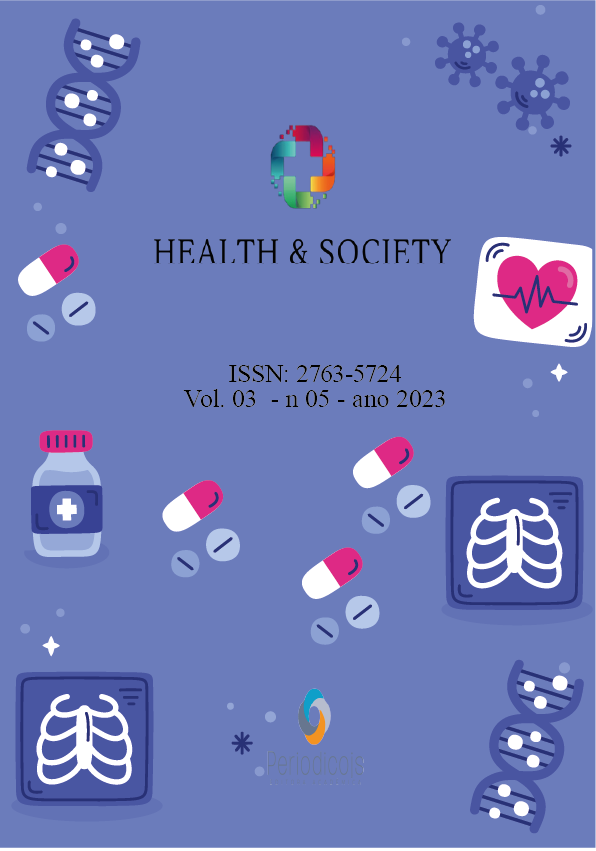Abstract
This study sought to investigate the use of educational technologies and their importance in acquiring knowledge about hygiene and oral health. For greater structuring and knowledge, a literature review was carried out, based on searches in articles, dissertations, theses, and specialized journals. The general objective of this article was to analyze the importance of using digital technologies and their contributions to students’ education and oral hygiene. For greater reliability regarding what was proposed to be researched in this work, qualitative research was carried out, and the type of study that best fit the proposal was descriptive research. Based on the results found throughout the study period on the topic discussed, the results indicated that the use of educational technologies works as an important ally, as it allows teachers to use a different way of promoting knowledge to their students. It is noteworthy that health education is of paramount importance for the student. It is notably known that schools play an important role in society and they also have the duty to teach not only the contents of the curriculum, but also to promote health education. It is noteworthy that schools must use digital technologies in their actions and methodologies to facilitate the student’s teaching-learning process, as in this way the most common oral diseases among students can be fully prevented. It is noteworthy that carrying out educational activities and actions on oral health promotes better therapeutic results, regardless of the technology used. Digital technologies can function as facilitators in the student’s teaching-learning process. However, the results point in a direction that indicates that it can be a promising instrument to improve adherence and motivation of Mental Health patients.
References
ALMEIDA, M. E. Informática e formação de professores. Brasília: Ministério da Educação, 2000.
CAVALCANTE, M. B. A educação frente as novas tecnologias: Perspectivas e desafios. 2012. Disponível em: https://escola-drxavierdealmeida.blogspot.com/2012/02/educacao-frente-as-novas-tecnologias.html Acesso em: 07 Out. 2023.
DEMO, P. Pesquisa e construção do conhecimento: metodologia cientifica no caminho de Habermas. Rio de Janeiro: Tempo Brasileiro, 1994.
FREIRE, P. Pedagogia da Autonomia: saberes necessários à prática educativa. São Paulo: Paz e Terra, 1996.
FREIRE, Paulo. Pedagogia da autonomia: saberes necessários para a prática educativa. Rio de Janeiro: Paz e Terra, 1998.
GATTI, B. A formação de professores e carreira: problemas e movimentos de renovação. Campinas, SP: Autores Associados, 1997.
KENSKI, Vani Moreira. Educação e tecnologias: Um novo ritmo da informação. 8. ed. Campinas: Papirus, 2012. p. 15-25.
LIBÂNEO, J. C. Didática. São Paulo: Cortez, 1991.
MACIEL, E. L. N. et al. 2012. Projeto Aprendendo Saúde na Escola: a experiência de repercussões positivas na qualidade de vida e determinantes da saúde de membros de uma comunidade escolar em Vitória, Espírito Santo. Ciênc. saúde coletiva, Rio de Janeiro , 15, (2), 389-396.
MARCONDES, R. S. 1972. Educação em saúde na escola. Rev. Saúde públ., S. Paulo, (6), 89-96.
MERHY, E. E. et al. 2003.O trabalho em saúde: olhando e experienciando o SUS no cotidiano. São Paulo: HUCITEC.
MONTE, T. L. et al. 2013. Produção científica sobre os modelos de educação em saúde na promoção de saúde bucal. R. Interd. 6, (4), 235-242.
MORAIS, A. M. et al. 2010. Serious Games na Odontologia: Aplicações, Características e Possibilidades. XII Brazilian Congresso f Health Informatics. Porto de Galinhas- PE. Brasil.
PAPERT, Seymour. A máquina das crianças: repensando a escola na era da informática. Porto Alegre: Artes Médicas, 1994.
PINHEIRO, P. M. 2010. A contribuição do acolhimento e do vínculo na humanização da prática do cirurgião-dentista no Programa Saúde da Família. Interface - Comunic., Saúde, Educ.
SAMPAIO, Marisa Narcizo. LEITE, Lígia Silva. Alfabetização tecnológica do professor. Ed. Petrópolis, RJ: Vozes, 2010.
TENÓRIO, L. C. et al. 2014. Educação em Saúde através das novas tecnologias da informação e comunicação: uma análise da (re) orientação dos nativos digitais no ciberespaço. Revista Científica Interdisciplinar, 1, (10).
VALENTE, José Armando. Aprendizagem continuada ao longo da vida. Pátio Revista Pedagógica, São Paulo, ano 4, n. 15, p. 9-12, nov. 2000/jan. 2001.
VENTURI, T. e MOHR, A. 2013. Análise da Educação em Saúde nos Parâmetros Curriculares Nacionais a partir de uma nova perspectiva. Educação em saúde e Educação em Ciências/ Atas do IX Encontro Nacional de Pesquisa em Educação em Ciências – IX ENPEC

This work is licensed under a Creative Commons Attribution 4.0 International License.
Copyright (c) 2023 Kathianna Neves de Souza, Raquel Neves de Souza Bibiano





